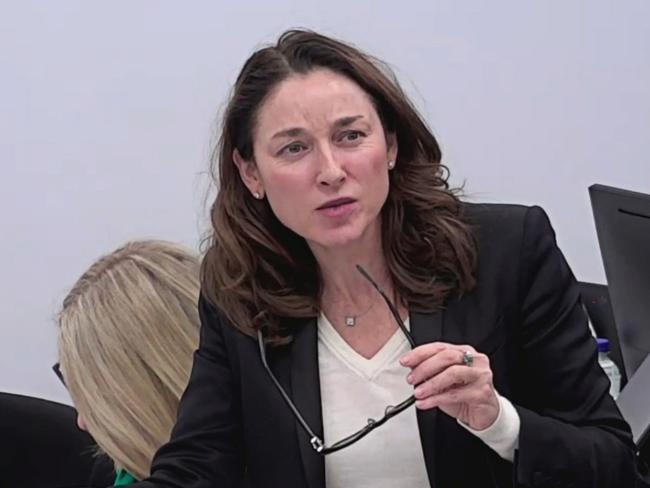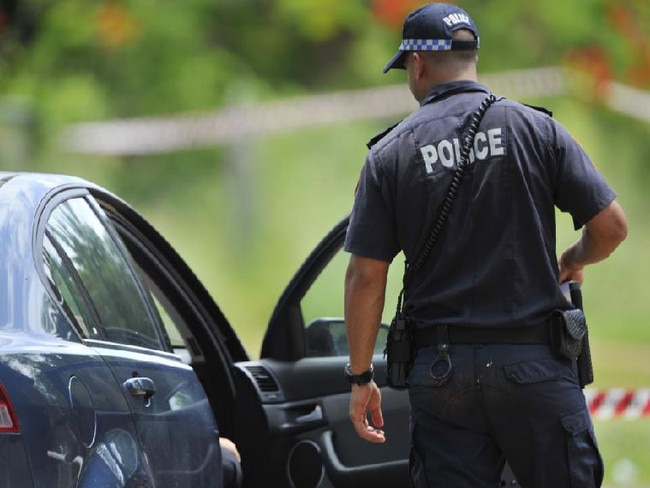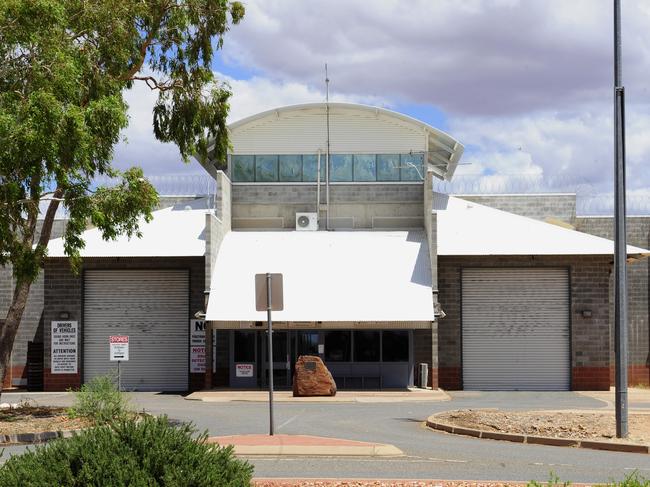Kumanjayi Haywood’s mother refused treatment for kidney disease after tragic death: Inquest
The inquest into Kumanjayi Haywood’s death has revealed her mother’s heartbreak, ‘really pathetic’ police responses and how systems failed a woman with ‘so much more life to live’.

Police & Courts
Don't miss out on the headlines from Police & Courts. Followed categories will be added to My News.
A mother’s heartbreak, “really pathetic” police responses, and the tragic loss of a woman with “so much more life to live” have rounded out the closing statements of the inquest into Kumanjayi Haywood’s death.
Two weeks of coronial hearings into the 34-year-old slain by her partner Kumanjayi Dixon wrapped up in Alice Springs on Friday.
In her closing statements Counsel Assisting the Coroner Peggy Dwyer reflected on the tragic legacy of Ms Haywood’s life and agonising death.
“It is clear she had been a victim of horrific levels violence, escalating violence, for around two decades and we have only a small snapshot in this court of what she actually experienced,” Dr Dwyer said.
“After Kumanjayi Haywood’s mum had to identify her daughter’s body – unimaginable after living in fear that would be the very thing she had to do – after that period of time she refused active treatment for her kidney disease and passed away.
“What a horrendous tragedy Kumanjayi Haywood’s death is for her, for her children, for her mum and the broader community.”

The “urgent” need for better police training in both domestic violence and cultural understanding was highlighted.
Evidence in the inquest this week revealed how Triple-0 dispatchers failed to respond to seven calls made by Ms Haywood and her mother on the night of September 27, 2021 – just six weeks before she was killed.
Despite telling police “I’ll be dead in one minute” and “I don’t want to die”, Mr Haywood’s calls were not categorised as urgent and police did not respond for almost 12 hours.
“She was brushed off by (Joint Emergency Services Call Centre) staff who misunderstood what she was trying to communicate and underestimated the risk that she was in,” Dr Dwyer said.
The most shocking, Dr Dwyer said, was a supervisor who told Ms Haywood she must not be in real danger if she was able to call so many times, and advised her to shelter under a veranda.
“The response was completely incorrect and completely inappropriate,” Dr Dwyer said.

When police went to speak to Ms Haywood at Haasts Bluff, a community west of Alice Springs, she eventually indicated she wanted to make a statement about Dixon’s violence.
Recordings revealed a young officer standing over Ms Haywood and saying: “right, so you only bring that up now that I’ve talked about the warrant”.
Dr Dwyer described the encounter as demonstrating a “really pathetic” understanding of domestic violence.
“It’s hard to see that anybody would ever want to open up to an officer demonstrating that lack of compassion,” she said.
In Tennant Creek, 80 per cent of police work involves responding to domestic violence.

The inquest has also shown how, even when law enforcement was in the room, Dixon’s violence could not necessarily be prevented.
One incident in 2011, a decade before Ms Haywood’s death, was highlighted in Dr Dwyer’s opening statement as one that “stands out for its cruelty and its brazen determination”.
Ms Haywood and Dixon were both residents of the Alice Springs Correctional Facility when he came across her in the common area.
In the full view of staff and prisoners Dixon grabbed Ms Haywood by the collar and forced her to the ground, yelling “you should have dropped the charges for me”.
Ms Haywood ran into a guard’s office, but Dixon grabbed her around the neck, punched her five times to the head, pushed her to the ground, kicked her in the mouth and then punched her a further four times to her left eye.
“No-one could reach them in time to stop the assault, in time to protect her,” Dr Dwyer said.
Ms Haywood died on November 7, 2021, two days after receiving burns to 90 per cent of her body when Dixon poured petrol under the door of a toilet she was hiding in and sparked a lighter.
Dixon also died from burns sustained in the fire.
The incident is one of four domestic violence killings being examined in a landmark six month coronial inquest into violence against Indigenous women in the Territory.
Since 2000, 79 women have been killed by a current or former partner in the NT – 74 of them were Aboriginal.





